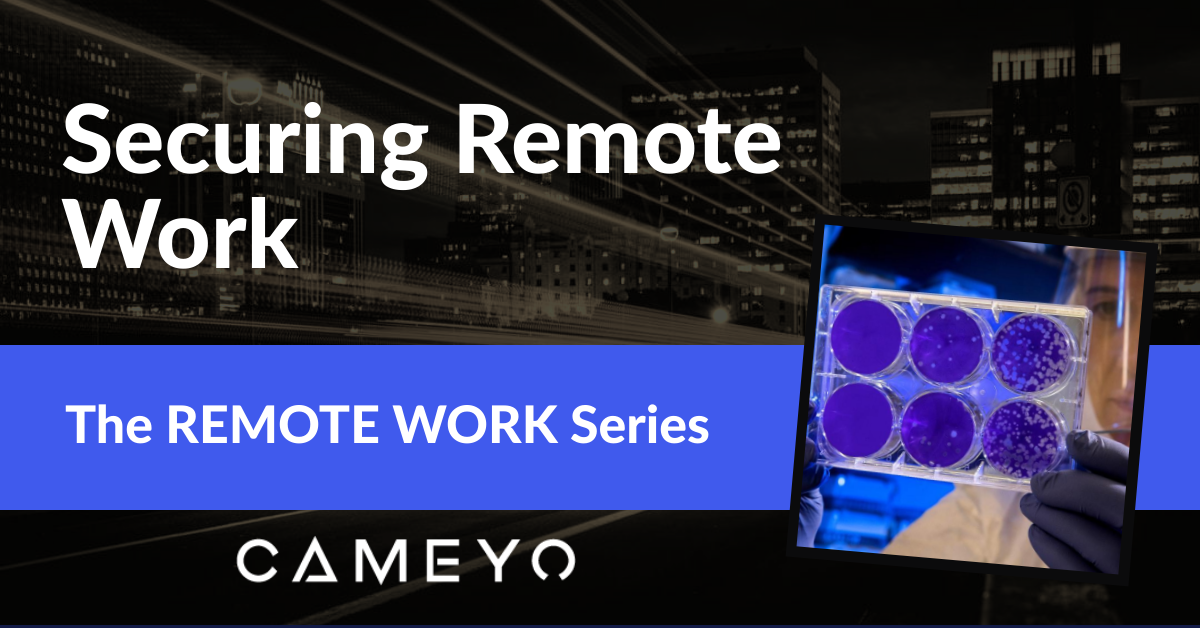We’ve been talking a lot about how you can protect your people and their productivity by enabling remote work during this pandemic – and it’s clear that this crisis is driving a massive increase in remote working, which will likely remain the norm for months to come. It’s essential to ensure that all of your people have access to the business-critical applications they need in order to be productive during these times, but it’s equally important to do so in a way that ensures the security of your company’s network and data at the same time. 
When large numbers of people who have not previously worked from home are suddenly asked to work remotely, one core challenge that presents itself is that many of those people are going to be working from their personal devices. 68% of companies report that desktop computers (vs. laptops) are still their primary computing devices for employees. That means that a lot of people don’t have the option to bring their work computer home, which means they’re now working from a personal device at home.
And in many cases, even people that do have a laptop provided to them by work, when at home they often prefer to use their personal devices. Either way – this means that there are suddenly a lot more people doing work from their personal devices, which are not controlled and managed by corporate IT.
So how can you give people access to the critical business applications they need – the ones that are typically installed locally on their work computers – when they’re working remotely on their personal device? And how can you make sure that, while accessing those applications on their personal devices, your corporate data and network will remain protected from any malware or issues that their personal devices may introduce?
With Cameyo’s virtual application delivery platform, you can provide your employees with access to all of their critical Windows applications from anywhere, on any device – all from the browser. Some of the benefits of this approach include:
- Cameyo separates the application layer from the OS, meaning that the applications don’t need to be installed locally on the user’s personal devices.
- IT admins can decide which users have access to which applications.
- Admins can also define where users save to and access files from – including their cloud storage service of choice.
- To ensure the protection of sensitive company data when people are working from personal devices, IT can use prevent users from saving files to their devices (enabling them to only save to the corporate cloud storage service of choice). They can also prevent users from Copy/Pasting data from the applications being accessed via Cameyo.
- As an added bonus – when applications need to be updated, you can update the application once in Cameyo, and all of your users will have instant access to the latest version without you needing to update software on every user’s device.
Cameyo helps you provide secure, remote access to business-critical applications on any device, so that your people can work from whatever device they have handy without compromising security. And because Cameyo’s virtual application delivery platform helps avoid the cost and complexity of rolling out VDI or DaaS, you can get your people up and running in a matter of hours – not months (see one example of how we helped a company enable 500 remote works in less than 3 hours).
In our next post in the Remote Work series, we’ll be discussing why VPNs are not the answer for remote work, and the additional security issues they introduce. Got questions in the meantime? Reach out to us at [email protected] and we’d be happy to help, schedule a demo, or get you started with a free trial.
